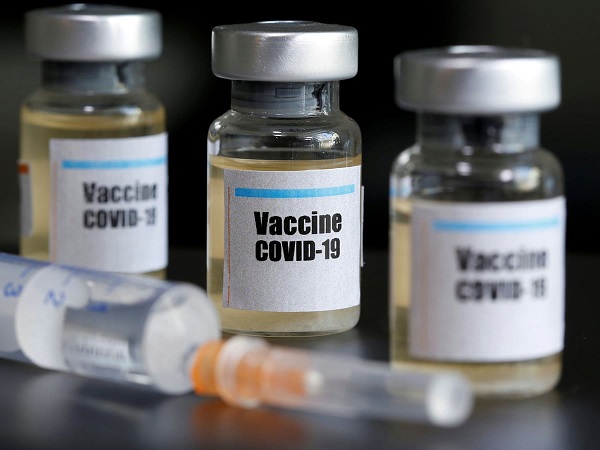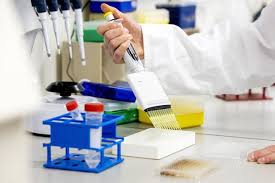
The quest for COVID-19 vaccines
It is more likely now that one or more vaccines against the Coronavirus, COVID-19, will be completed and ready for use worldwide by the end of 2020 or early 2021.
The global pandemic has, presently, infected worldwide, 16,262,481 persons and killed 648,913.
No drug or vaccine is available, currently, to prevent infections in human beings. Wearing of nose-masks and social or physical distancing combined with hand-washing with soap and use of hand sanitizers and lockdowns – are the only available preventive measures.
Advertisement
A few new drugs that have shown promise are being used to treat patients with serious infections of COVID-19.
Dexamethasone, a repurposed already-known drug, is being used to reduce death among patients on ventilators and on oxygen.
Remdesivir, is a new drug being developed by a United states pharmaceutical company, Gilead. It has been found to significantly reduce duration of the disease in human beings.
Some 23 vaccines are, currently, on clinical trials around the world, according to the World Health Organisation.
Five candidate vaccines have started, or are close to beginning, their Phase 3 trials. Three of the five are being developed by Chinese entities.
Pfizer Inc, a pharmaceutical firm, and BioNTech, another pharmaceutical company, are due to start Phase 3 testing of their own COVID-19 vaccine, this week.
Another pharmaceutical firm, Johnson and Johnson, is scheduled to test, at Phase 3, its COVID-19 vaccine next September.

The Russian Federation has announced that it had taken a vaccine through the final stage, Phase 3, but no data on the vaccine was provided.
Other Trending Stories
This July, two COVID-19 research groups, one in the United States of America and the other in the United Kingdom, announced that positive results of their phases one and two clinical trials had put them on the path to Phase 3 clinical trials.
Phase 3 is the final stage of clinical trial of a candidate vaccine to prove that it is safe and efficacious in humans for the treatment of COVID-19 disease.
Moderna, a biopharmaceutical company in the US, is pushing ahead with the final stage clinical trial of its vaccine, mRNA-1273.
The vaccine is reported to be a “messenger ribonuclei acid (mRNA) based vaccine – designed to express the Coronavirus spike protein based on the genomic sequence of 2019–nCoV’’.
The health scientists have said that the vaccine is administered into a person by injection through the arm.
For its Phase 2 trial, the vaccine received approval from the US FDA on May 6, 2020. With a few patients given the vaccine, the drug proved successful because it was found to be safe and efficacious while producing minor side effects.
Moderna’s Phase 3 clinical trial will involve 30,000 volunteers who will be injected with larger doses of the vaccine.
A release issued online stated that the Phase 3 trial would start late July, 2020.
According to the release, the Phase 2 and Phase 3 trials would provide more results and additional evidence and better assessment of mRNA-1273 vaccine – as an effective medicine for COVID-19.
“If successful, this would be the first mRNA vaccine to seek marketing authorisation,” the report added.
Dr Dean Blumberg, an infectious disease specialist with the UC Davis Children Hospital in the US, described the results of the clinical trials, so far, as “promising” but “preliminary”.
“Ideally, we will like a vaccine that we can give to everybody to provide widespread protection against COVID-19,” Dr Blumberg added.
According to the Moderna’s release, the company was ready, if the final clinical trial proved successful, to produce approximately between 500 million and 1 billion doses of the vaccine every year.

The Moderna’s vaccine is being developed in collaboration with the US National Institute of Allergy and Infectious Disease (NIAID).
On the Oxford University vaccine, ChAdOx1 nCoV-19, results of Phase 1 and 2 studies published in the UK scientific journal, The Lancet, last week, showed that the vaccine was safe and efficacious.
There is, however, the need for further trials in Phase 3 to ensure it has long-lasting safety and effectiveness.
The publication reported that there were no early safety concerns and that there were strong immune responses in the volunteers who received the vaccine.
“The Phase 1 and 2 data for our Coronavirus vaccine shows that the vaccine did not lead to any unexpected reactions and had similar safety profiles to previous vaccines of this type,” Prof Pollard, a member of the research team, has said.
“We saw the strongest human response in 10 participants who received 2 doses of the vaccine indicating that this might be a good strategy for vaccination,” Prof Pollard further said.
The programme to develop a vaccine against Coronavirus by the team started in January 2020 at Oxford University.
Phase 1 and 2 results of clinical trials have been described by the scientists as encouraging.
In the Phase 2 trial, more than 1,000 healthy adult volunteers within the ages of 18 and 55 years received the vaccine.
Further testing, in Phase 3, is needed to assess the ability of the vaccine to effectively protect people from COVID-19.
On the manufacture and distribution of the vaccine, it has been reported that the Oxford University was working with Astra-Zeneca, a UK based pharmaceutical firm, for its large-scale manufacture.
Astra-Zeneca has agreed with firms in the UK, US, Europe and India for global distribution of the prospective vaccine.
Alok Sharma, business secretary of Astra-Zeneca, has said, “Today’s results are encouraging, taking us one step close to finding a successful vaccine to protect millions in the UK and across the world.’’




